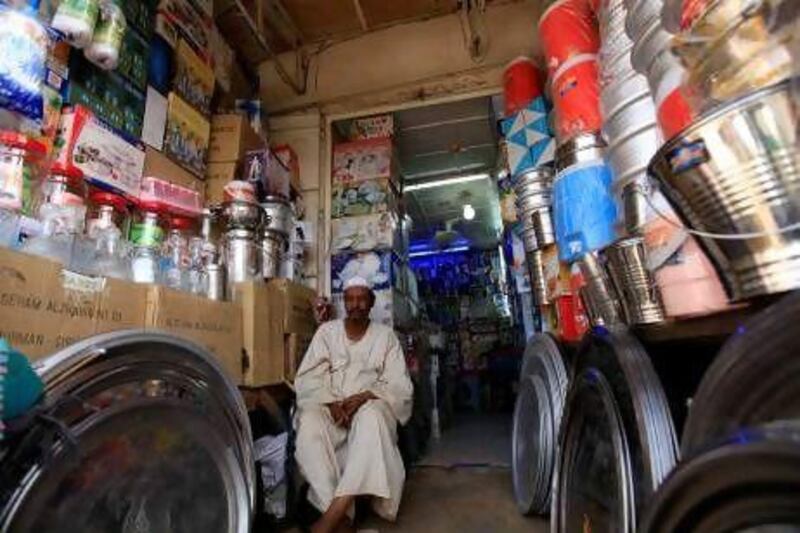The first time I tried to visit Sudan, I was shut down by the government. I had dutifully applied to the embassy and bided my time. Then I waited some more and, after waiting a bit longer, I finally received a response: visa denied, with no reason or explanation provided.
I was disappointed, but I knew it wouldn't be easy. Most Westerners need a good reason to gain admittance to Sudan. My reason was simply that I wanted to see the country. No problem, I decided - I'd simply regroup and try again.
The second time I tried to visit Sudan, I knew I'd need some help. I talked to a European friend who was working with a non-profit organisation in Khartoum. Could her organisation help to sponsor my visa application? It was tricky but she agreed to do me a big favour and give it a try. All foreigners visiting Sudan need to have advance permission, so I thought, since I had a local contact, it wouldn't be that difficult.
I sent in my application (keeping my passport this time) and dutifully waited. And waited.
My friend apologised a couple of months later. "Sorry," she said. "They're really clamping down on foreign visitors lately."
I had several similar experiences over the following six months. I'd find a contact, they'd offer to help but, before long, I'd hear that the application was declined without explanation.
Last month, I finally made it to Khartoum - once I learnt a key lesson. Getting a visa in advance, as I had discovered, was nearly impossible for someone with my passport and no good reason to go. But, thankfully, there was an alternative. Instead of applying for a visa, a local travel agency could apply on my behalf for an "airport entry permit". Upon arrival, I'd trade my entry permit and US$150 (Dh550) in cash for an actual visa. All the travel agency would need was my passport number and a brief waiting period of three business days - I didn't even have to provide a reason for my trip.
I was sceptical at first. Only $150 and three days? Really? I had previously waited six weeks, only to be met with denial or more silence. In this case, however, the story proved true: while waiting in Dubai on a layover, I received an email with an attached image for printout. The image was my entry permit, and I was good to go.
I travelled on a Flydubai flight that arrived shortly after midnight. As promised, the entry procedures were minimal and easy. After only 20 minutes of waiting, I was admitted to Sudan with a "60 days; no work permitted" stamp. I didn't need to stay two whole months and I had no plans to look for work, but I was glad to be there.
I checked into a guesthouse run by German expats and stumbled into bed in the middle of the night, still excited from having finally made it to Khartoum. The next morning I set off on a city tour, partially guided by a driver named Abdullah. As I have seen over and over on my travels, I encountered only hospitality from the people I met. It reminded me of visiting the autonomous region of Kurdistan, which is either part of Iraq, part of Turkey, or completely independent, depending on who you ask. Before I went I was somewhat apprehensive, but after getting there I felt nothing but welcome.
Abdullah drove me around the city, stopping at mosques and markets. At one point, he disappeared for more than an hour. I sat on the steps and shielded my eyes from the sun. Then I waited for Abdullah and, just as I had initially waited for my Sudan visa, I kept waiting. When he finally turned up, he said something about going to pray at the mosque.
At the national museum, entry was cheap - less than a dollar. I only had a large bill, though, so when the clerk realised I had no change, she shrugged and said, "OK. You go free." There were no hassles and nothing but friendly greetings from everyone I met.
On Thursday night at the guesthouse, a big party broke out. Karaoke included, it was a great party - for the first two hours. The only problem was that it continued throughout much of the night, right outside the window of my guesthouse room. It didn't help that I was scheduled to fly to Amman at 6.35am, which required a 4.30am taxi ride.
I finally gave up, got out of bed and took a walk down the street in the predawn moonlight. No one else was awake; I had the whole neighbourhood to myself. I had finally made it to one of the hardest countries on my list. Sudan - there it was.
Chris Guillebeau, 33, is the author of The Art of Non-Conformity, published by Penguin. He is on a five-year mission to visit every country in the world, and is currently on number 184. Next week: whether it's your first adventure or the 31st, treat it as something special??.





